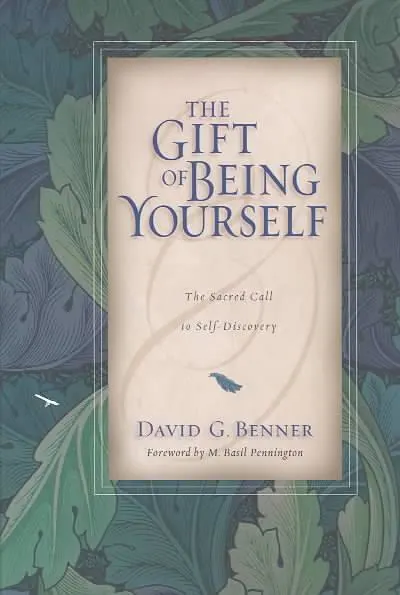As Christians, we talk about knowing God. However, Christians have recognized over the years that profound knowledge of God is impossible without a deep awareness of oneself. Knowing your self and God’s purposes for you go hand in hand. Interestingly, the more like Christ you are, the more truly you are yourself. N.T. Wright calls this being genuinely human.
“You are called to be truly human, but it is nothing short of the life of God within you that enables you to be so, to be remade in God’s image.”
N.T. Wright, The Challenge of Easter
David G. Benner makes a strong connection between our self-discovery and spirituality in his examination of Christian identity in the book, The Gift of Being Yourself. He asks us to uncover our true selves that spring from our individuality in Christ and exposes any fake selves we may be protecting. Benner dispels our self-delusions by demonstrating how self-awareness accomplishes our God-given vocations.
“God’s call to our fulfillment is therefore a call to take our place in His grand restoration agenda of making all things new in Christ. Our vocation is grounded in the self that from eternity God has willed that we be. Our calling is to become that self and then to serve God and our fellow human beings in the particular ways that will represent the fulfillment of that self. Our identity is not simply a possession. It is a calling” (p. 105).
On being loved as a sinner
“Some Christians base their identity on being a sinner. I think they have it wrong—or only half right. You are not simply a sinner; you are a deeply loved sinner. And there is all the difference in the world between the two” (p. 64)
“Real knowing of ourselves can only occur after we are convinced that we are deeply loved precisely as we are” (p. 65).
“Focusing on sins leads to what Dallas Willard describes as the gospel of sin management — a resolve to avoid sin and strategies to deal with guilt when this inevitably proves unsuccessful. But Christian spiritual transformation is much more radical than sin avoidance. And the knowing of self that is required for such transformation is much deeper” (p. 65).
On spiritual transformation
“Christian spirituality involves a transformation of the self that occurs only when God and self are both deeply known. Both, therefore, have an important place in Christian spirituality. There is no deep knowing of God without a deep knowing of self, and no deep knowing of self without a deep knowing of God” (p. 20).
“Deep knowing of God and deep knowing of self always develop interactively. The result is the authentic transformation of the self that is a the core of Christian spirituality” (p. 30).
“Spiritual transformation involves the purification of sight. Jesus said that if our eye is healthy, our whole body will be full of light (Luke 11:34). We have to learn to see—and accept—what is really there. Stripping away our illusions is part of this process, as it reorients us toward reality. To see God as God is—not as who we want God to be—requires that we see our self as we actually are. For the same cloud of illusions obscures our view of both God and ourselves” (p. 63).
On vocation
“Our vocation is always a response to a Divine call to take our place in the kingdom of God. Our vocation is a call to serve God and our fellow humans in the distinctive way that fits the shape of our being. In one way or another, Christian calling will always involve the care of God’s creation and people. This realigns us to the created world and to our neighbor, moving us from self-centered exploitation to self-sacrificing service and stewardship” (p. 97).
“Too often we think of God’s call (or our vocation) solely in terms of what we do. People speak of being called to the ministry or feeling called to work in healthcare or teaching. However, while doing will always be involved, vocation is much more than our occupation. It is the face of Christ we are called from eternity to show to the world. It is who we are called to be” (p. 101)
“God’s will for us is that we live out the harmonious expression of our gifts, temperament, passions and vocation in truthful dependence on God. Nothing less than this is worthy of being called our true self. Nothing less than this will lead to our deepest fulfillment” (p. 103).
A Hymn of Praise
O Lord, I would delight in thee,
and on thy care depend;
to thee in every trouble flee,
my best, my only friend.When all created streams are dried,
thy fulness is the same:
may I with this be satisfied,
and glory in thy name.No good in creatures can be found
but may be found in thee;
I must have all things and abound,
while God is God to me.He that has made my heaven secure
will here all good provide;
while Christ is rich can I be poor?
What can I want beside?O Lord, I cast my care on thee;
John Ryland 1777
I triumph and adore;
henceforth my great concern shall be
to love and please thee more.
Reference: Benner, D. G. (2004). The Gift of Being Yourself: The Sacred Call to Self-Discovery. United States: InterVarsity Press.
